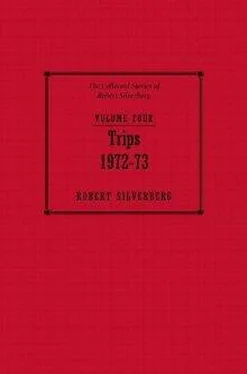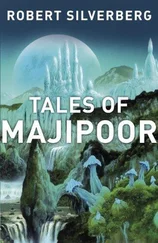Robert Silverberg - Born with the Dead
Здесь есть возможность читать онлайн «Robert Silverberg - Born with the Dead» весь текст электронной книги совершенно бесплатно (целиком полную версию без сокращений). В некоторых случаях можно слушать аудио, скачать через торрент в формате fb2 и присутствует краткое содержание. Год выпуска: 2009, ISBN: 2009, Издательство: Subterranean Press, Жанр: Фантастика и фэнтези, на английском языке. Описание произведения, (предисловие) а так же отзывы посетителей доступны на портале библиотеки ЛибКат.
- Название:Born with the Dead
- Автор:
- Издательство:Subterranean Press
- Жанр:
- Год:2009
- ISBN:978-1-59606-212-2
- Рейтинг книги:5 / 5. Голосов: 1
-
Избранное:Добавить в избранное
- Отзывы:
-
Ваша оценка:
- 100
- 1
- 2
- 3
- 4
- 5
Born with the Dead: краткое содержание, описание и аннотация
Предлагаем к чтению аннотацию, описание, краткое содержание или предисловие (зависит от того, что написал сам автор книги «Born with the Dead»). Если вы не нашли необходимую информацию о книге — напишите в комментариях, мы постараемся отыскать её.
Born with the Dead — читать онлайн бесплатно полную книгу (весь текст) целиком
Ниже представлен текст книги, разбитый по страницам. Система сохранения места последней прочитанной страницы, позволяет с удобством читать онлайн бесплатно книгу «Born with the Dead», без необходимости каждый раз заново искать на чём Вы остановились. Поставьте закладку, и сможете в любой момент перейти на страницу, на которой закончили чтение.
Интервал:
Закладка:
“Hiding in the next room? No, no, nothing like that. But I do have a small surprise for you. Come into the library.” Smiling expansively, Jijibhoi led the way from the dining room to the small study adjoining it, a room densely packed from floor to ceiling with books in an astonishing range of languages—not merely English, French, and German, but also Sanskrit, Hindi, Gujerati, Farsi, the tongues of Jijibhoi’s polyglot upbringing among the tiny Parsee colony of Bombay, a community in which no language once cherished was ever discarded. Pushing aside a stack of dog-eared professional journals, he drew forth a glistening picture-cube, activated its inner light with a touch of his thumb, and handed it to Klein.
The sharp, dazzling holographic image showed three figures to a broad grassy plain that seemed to have no limits and was without trees, boulders, or other visual interruptions, an endlessly unrolling green carpet under a blank death-blue sky. Zacharias stood at the left, his face averted from the camera; he was looking down, tinkering with the action of an enormous rifle. At the far right stood a stocky, powerful-looking dark-haired man whose pale, harsh-featured face seemed all beard and nostrils. Klein recognized him: Anthony Gracchus, one of the deads who had accompanied Sybille to Zanzibar. Sybille stood beside him, clad in khaki slacks and a crisp white blouse. Gracchus’ arm was extended; evidently he had just pointed out a target to her, and she was intently aiming a gun nearly as big as Zacharias’.
Klein shifted the cube about, studying her face from various angles, and the sight of her made his fingers grow thick and clumsy, his eyelids to quiver. Jijibhoi had spoken truly: she had lost none of her beauty. Yet she was not at all the Sybille he had known. When he had last seen her, lying in her casket, she had seemed to be a flawless marble image of herself, and she had that same surreal statuary appearance now. Her face was an expressionless mask, calm, remote, aloof; her eyes were glossy mysteries; her lips registered a faint, enigmatic, barely perceptible smile. It frightened him to behold her this way, so alien, so unfamiliar. Perhaps it was the intensity of her concentration that gave her that forbidding marmoreal look, for she seemed to be pouring her entire being into the task of taking aim. By tilting the cube more extremely, Klein was able to see what she was aiming at: a strange awkward bird moving through the grass at the lower left, a bird larger than a turkey, round as a sack, with ash-gray plumage, a whitish breast and tail, yellow-white wings, and short, comical yellow legs. Its head was immense and its black bill ended in a great snubbed hook. The creature seemed solemn, rather dignified, and faintly absurd; it showed no awareness that its doom was upon it. How odd that Sybille should be about to kill it, she who had always detested the taking of life: Sybille the huntress now, Sybille the lunar goddess, Sybille-Diana!
Shaken, Klein looked up at Jijibhoi and said, “Where was this taken? On that safari in Tanzania, I suppose.”
“Yes. In February. This man is the guide, the white hunter.”
“I saw him in Zanzibar. Gracchus, his name is. He was one of the deads traveling with Sybille.”
“He operates a hunting preserve not far from Kilimanjaro,” Jijibhoi said, “that is set aside exclusively for the use of the deads. One of the more bizarre manifestations of their subculture, actually. They hunt only those animals which—”
Klein said impatiently, “How did you get this picture?”
“It was taken by Nerita Tracy, who is one of your wife’s companions.”
“I met her in Zanzibar too. But how—”
“A friend of hers is an acquaintance of mine, one of my informants, in fact, a valuable connection in my researches. Some months ago I asked him if he could obtain something like this for me. I did not tell him, of course, that I meant it for you.” Jijibhoi looked close. “You seem troubled, dear friend.”
Klein nodded. He shut his eyes as though to protect them from the glaring surfaces of Sybille’s photograph. Eventually he said in a flat, toneless voice, “I have to get to see her.”
“Perhaps it would be better for you if you would abandon—”
“No.”
“Is there no way I can convince you that it is dangerous for you to pursue your fantasy of—”
“No,” Klein said. “Don’t even try: It’s necessary for me to reach her. Necessary.”
“How will you accomplish this, then?”
Klein said mechanically, “By going to Zion Cold Town.”
“You have already done that. They would not admit you.”
“This time they will. They don’t turn away deads.”
The Parsee’s eyes widened. “You will surrender your own life? Is this your plan? What are you saying, Jorge?”
Klein, laughing, said, “That isn’t what I meant at all.”
“I am bewildered.”
“I intend to infiltrate. I’ll disguise myself as one of them. I’ll slip into the Cold Town the way an infidel slips into Mecca.” He seized Jijibhoi’s wrist. “Can you help me? Coach me in their ways, teach me their jargon?”
“They’ll find you out instantly.”
“Maybe not. Maybe I’ll get to Sybille before they do.”
“This is insanity,” Jijibhoi said quietly.
“Nevertheless. You have the knowledge. Will you help me?”
Gently Jijibhoi withdrew his arm from Klein’s grasp. He crossed the room and busied himself with an untidy bookshelf for some moments, fussily arranging and rearranging. At length he said, “There is little I can do for you myself. My knowledge is broad but not deep, not deep enough. But if you insist on going through with this, Jorge, I can introduce you to someone who may be able to assist you. He is one of my informants, a dead, a man who has rejected the authority of the Guidefathers, a person who is of the deads but not with them. Possibly he can instruct you in what you would need to know.”
“Call him,” Klein said.
“I must warn you he is unpredictable, turbulent, perhaps even treacherous. Ordinary human values are without meaning to him in his present state.”
“Call him.”
“If only I could discourage you from—”
“Call him.”
Five
Quarreling brings trouble. These days lions roar a great deal. Joy follows grief. It is not good to beat children much. You had better go away now and go home. It is impossible to work today. You should go to school every day. It is not advisable to follow this path, there is water in the way. Never mind, I shall be able to pass. We had better go back quickly. These lamps use a lot of oil. There are no mosquitoes in Nairobi. There are no lions here. There are people here, looking for eggs. Is there water in the well? No, there is none. If there are only three people, work will be impossible today.
D.V. Perrott: Teach Yourself SwahiliGracchus signals furiously to the porters and bellows, “Shika njia hii hii!” Three turn, two keep trudging along. “Ninyi nyote!” he calls. “Fanga karma hivi!” He shakes his head, spits, flicks sweat from his forehead. He adds, speaking in a lower voice and in English, taking care that they will not hear him, “Do as I say, you malevolent black bastards, or you’ll be deader than I am before sunset!”
Sybille laughs nervously. “Do you always talk to them like that?”
“I try to be easy on them. But what good does it do, what good does any of it do? Come on, let’s keep up with them.”
It is less than an hour after dawn, but already the sun is very hot, here in the flat dry country between Kilimanjaro and Serengeti. Gracchus is leading the party northward across the high grass, following the spoor of what he thinks is a quagga, but breaking a trail in the high grass is hard work and the porters keep veering away toward a ravine that offers the tempting shade of a thicket of thorn trees, and he constantly has to harass them in order to hold them to the route he wants. Sybille has noticed that Gracchus shouts fiercely to his blacks, as if they were no more than recalcitrant beasts, and speaks of them behind their backs with a rough contempt, but it all seems done for show, all part of his white-hunter role: she has also noticed, at times when she was not supposed to notice, that privately Gracchus is in fact gentle, tender, even loving among the porters, teasing them—she supposes—with affectionate Swahili banter and playful mock-punches. The porters are role-players too: they behave in the traditional manner of their profession, alternately deferential and patronizing to the clients, alternately posing as all-knowing repositories of the lore of the bush and as simple, guileless savages fit only for carrying burdens. But the clients they serve are not quite like the sportsmen of Hemingway’s time, since they are deads, and secretly the porters are terrified of the strange beings whom they serve. Sybille has seen them muttering prayers and fondling amulets whenever they accidentally touch one of the deads, and has occasionally detected an unguarded glance conveying unalloyed fear, possibly revulsion. Gracchus is no friend of theirs, however jolly he may get with them: they appear to regard him as some sort of monstrous sorcerer and the clients as fiends made manifest.
Читать дальшеИнтервал:
Закладка:
Похожие книги на «Born with the Dead»
Представляем Вашему вниманию похожие книги на «Born with the Dead» списком для выбора. Мы отобрали схожую по названию и смыслу литературу в надежде предоставить читателям больше вариантов отыскать новые, интересные, ещё непрочитанные произведения.
Обсуждение, отзывы о книге «Born with the Dead» и просто собственные мнения читателей. Оставьте ваши комментарии, напишите, что Вы думаете о произведении, его смысле или главных героях. Укажите что конкретно понравилось, а что нет, и почему Вы так считаете.












